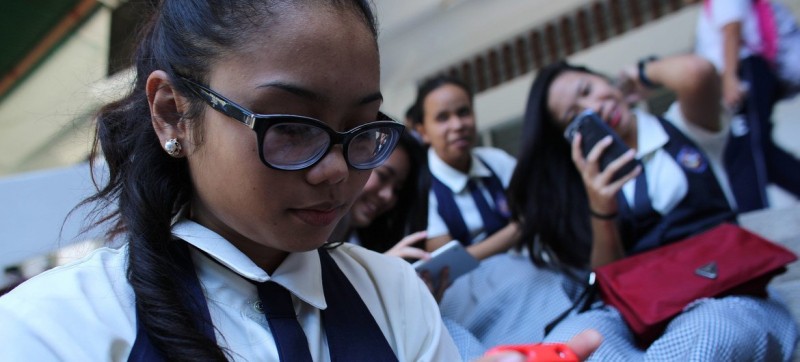Social media has a huge influence in children’s lives and being constantly connected to the Internet also comes with many risks, including online exploitation and disinformation. Societies everywhere are beset by “global diseases” including systemic inequality which have helped fuel a rise in disinformation, or the deliberate spreading of falsehoods, said the UN human rights chief on Tuesday, addressing the Human Rights Council in Geneva. Michelle Bachelet said the restoration of public trust was essential, as disinformation should really be seen as a symptom of diseases such as systemic inequality, which has seen “deep-seated discrimination” flourish, along with fragile institutions, a loss of trust in effective governance, and “limited rule of law”.
She said those countries impacted by inequality were now threatened with instability and frayed co-existence within society.
Flourishing amid discontent
“Disinformation spreads when people feel that their voices are not heard. It arises in contexts where political disenchantment, economic disparity or social unrest flourish”, she said.
“It flourishes when civil society, journalists, human rights defenders and scientists cannot work, assemble and speak freely. When civic space is limited or closed. When the human rights to freedom of expression and access to information are threatened.”
It can be fuelled by governments and public officials, potentially leading to hate crimes and violence.
But she warned governments against trying to “officially ordain what is false, and what is true, and then attach legal consequences to those determinations. Our human right to access and impart information, is not limited to only what is deemed by the State as ‘accurate’”.
She called for a focus on “assessing how communications are being revolutionized by technology and on unpacking who is responsible for what.
“We need to look at how best to contain the harms caused by disinformation, while addressing the underlying causes that give disinformation life and allow it to gain traction.”
She said the sheer speed and volume of information circulating online, meant that it could be easily manipulated, with campaigns using automatic tools, rapidly creating a “false impressions of broad popular support for or against certain ideas, or be used to counter and marginalise dissident voices and ideas.”
Organized disinformation campaigns are also being used to silence rights defenders, journalists, and minority voices, “and as a result of repeated attacks, women, minority communities and others can be deterred from participating in the public sphere.”
Fighting back
The international response has to be consistent with universal rights obligations, she warned.
“When we debate the best ways to respond, we need to understand that censorship is not only an ineffective medicine – it can actually harm the patient.” Freedom of expression and the right to access information are essential, she underscored.
“I therefore call on States to uphold their international obligation to promote and protect these rights, whatever the social ill they seek to mitigate. Maintaining a vibrant and pluralistic civic space will be crucial in this endeavour.”
She called for policies which support independent journalism, pluralism in media, and digital literacy, which can help citizens “navigate” the online world and boost critical thinking.
“States must also ensure wide and free access to information so that it reaches all communities and constituencies…Trust can never be achieved without genuine government transparency.”
Social media regulation ‘insufficient’
The human rights chief said that social media businesses have transformed the way information circulates, “and they have a clear role to play.”
“To start with, we must understand better how they affect our national and global debates. While platforms have taken welcome steps to enhance their own transparency, and redress channels, progress remains insufficient.
She called for independent auditing of social media companies’ services and operations, and more clarity on the way advertising and personal data is being handled.
“And we need access for researchers and others to the data within companies, that can help us better understand and address disinformation.”
Two steps
Ms. Bachelet told the Human Rights Council that there are two “critical needs” in the battle against rising disinformation.
“First, we need to deepen our understanding and knowledge: we need more research on how the digital sphere has transformed media and information flows; on how best to build public trust within this environment; and on how different actors can contribute to countering disinformation operations.”
Secondly, she said all discussions had to be framed within human rights norms. “Shortcuts do not work here: censorship and broad content take-downs are an ineffective and dangerous response.”




Comments are closed.